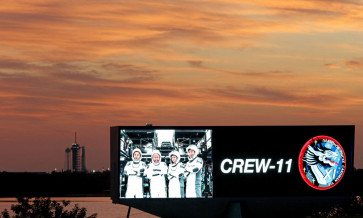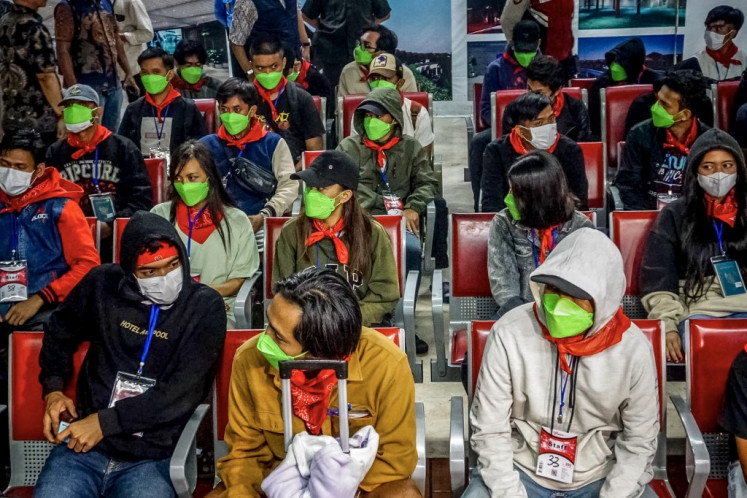Popular Reads
Top Results
Can't find what you're looking for?
View all search resultsPopular Reads
Top Results
Can't find what you're looking for?
View all search resultsIn Central Java, officials face fuel conversion woes
Top bureaucrats in several regencies in Central Java say they will have problems implementing the rule banning official vehicles from using subsidized fuel that came into effect on Wednesday
Change text size
Gift Premium Articles
to Anyone
T
op bureaucrats in several regencies in Central Java say they will have problems implementing the rule banning official vehicles from using subsidized fuel that came into effect on Wednesday.
The provincial regulation, which effectively requires official vehicles to convert to Pertamax, a non-subsidized fuel that is twice the price of subsidized gasoline, would be much easier if regencies were given more money, one official said.
“It would not be a problem for us if we were allowed to increase the budget,” Banyumas regency secretary Mayangkoro said on Wednesday.
The Central Java administration issued a gubernatorial circular banning official vehicles from using subsidized fuel to support the central government’s policy to reduce subsidized fuel use in Java and Bali.
However, the circular did not approve an increase in provincial, regency or municipality budgets to compensate for the increased expenditures.
“We are ready to implement the conversion as stipulated in the circular. Only, we are still formulating the concept,” Mayangkoro said.
The head of the Banyumas Energy and Mineral Resource Agency, Anton Adi W, said that the policy would place a strain on the regency’s finances, which currently allocated funds for 20 liters of fuel per official vehicle per week.
The existing allocation would buy less than half that amount. “This is for sure not an easy thing to deal with,” he said.
This situation was exacerbated as the regency was in the middle of the fiscal year, meaning that the new policy would lead to a reduction in official business, Anton said.
“According to my rough calculations, the conversion [policy] could cut program activities by 20 percent,” he said.
Meanwhile, in Banjarnegara, Central Java, Regent Sutedjo Slamet Utomo said he had called on officials to conserve fuel as the ban was implemented and that he would issue a decree. “We are currently making an inventory of all our official vehicles, including cars and motorcycles,” he said.
Purbalingga Regent Heru Sudjatmoko expressed a similar sentiment. “There is no other way but to conserve fuel, no matter how,” he told The Jakarta Post.
However, Heru said that implementing the ban would not necessarily require programs to be scaled back. Carpooling, among other economy measures, could make the regency’s fuel rupiah travel farther, Heru said.
“When we have an official event to attend together, for example, we can share a car rather than driving different cars,” he said.
The regency’s official vehicle fleet consumed 57,000 kiloliters of gasoline and 15,500 kiloliters of diesel fuel this year to date, according to the Purbalingga Trade, Industry and Cooperatives Agency, Heru said.
Separately public administration expert Arif Hidayat of Diponegoro University in Semarang said that the circular was not legally binding, meaning that regency and municipal administrations could just ignore it.
“Instructions and circulars are not an effective for enforcement, especially when they do not come with clear sanctions,” he said.
Arif said a legally binding presidential or gubernatorial decree would ensure compliance if the government was serious in its intentions to require non-subsidized fuel for official vehicles.
In a related development, Karen Agustiawan, the president director of state oil and gas company PT Pertamina said in Jakarta on Wednesday that the firm company was ready to support the ban in Java and Bali regions, setting up 2,107 out of its 3,083 gas stations to sell Pertamax.
“They will work,” she said as quoted by jpnn.com.










